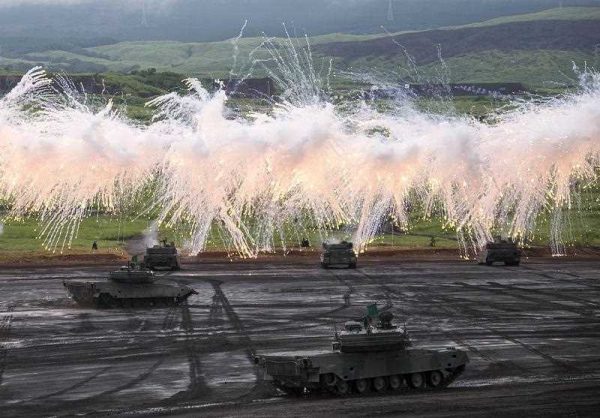Among these hot-button issues, one major, decades-spanning institutional change has gone largely unanalysed: the National Security Council (NSC).
Analysis of Japanese defence reform has tended to emphasise its immediate security environment and perceived domestic — that is, nationalist — inspiration. Yet Japan’s NSC fits squarely within a trend in many countries toward revision of the security policy decision-making process. This trend is occurring amidst the increasing speed of change in the 21st-century security environment and the growing need for strengthened coordination among security-related policy bureaus and advisory organs.
The NSC has supplemented the previous Security Council’s oversight with efficient four ministers’ meetings and adaptive emergency situation ministerial meetings in addition to maintaining the nine ministers’ meetings. Under the direction of a Secretary General and National Security Advisor, a new National Security Secretariat has been tasked with formulating and coordinating the basic direction of diplomatic and defence policies relating to national security and the gathering and organising of documents and information provided to the NSC.
The development of the Japanese NSC supports innovation of Japanese national security decision-making. It provides an opportunity to alleviate the intense disputes that have previously arisen between ministries and agencies, establishing a new ‘whole of government approach’ in support of strategic planning. It also aims to enhance the overall decision-making process in times of crisis through its legally mandated intelligence centrality.
The NSC has the potential to improve Japan’s ability to manage increasingly prevalent and high-risk ‘grey zone’ situations — infringements of Japan’s territorial and air space that do not amount to an armed attack — that may be beyond the usual scope of the Ministries of Foreign Affairs and Defense. Dealing with these vitally depends on consistency among agencies involved and frequently requires close and regular contact with foreign NSCs.
While Japan’s NSC has gained recognition, there is no certainty about how it will develop. When the Truman administration passed the landmark 1947 National Security Act that established the NSC in the United States, few would have predicted the variation and scale of what was to follow. With this in mind, several challenges must be addressed for the Japanese NSC to live up to its potential.
First, the NSC must set a precedent against the negative influence of bureaucratic politics. A particular effort should be made to ensure that the system of interagency coordination is proceeding effectively and will not create new stovepipe divisions. To build institutional strength, it is important for Japan’s prime minister to have the political longevity and interest in foreign policy to attract the best and brightest staff and to ensure that the bureaucracy does not wait them out. The secretariat’s success in establishing itself within the policymaking process will rely on the perception of the secretary general as being vested with the prime minister’s authority.
Second, Japan should actively increase its intelligence capabilities. Along with its review of how the Islamic State (IS) crisis was handled, Tokyo must evaluate its system for supplying the information necessary for rapid decision-making to the NSC. Tokyo should seek to improve its intelligence by expanding its information sharing with other states and examining ways to improve its information gathering capabilities. With the NSC serving as both the intelligence and national security decision-making headquarters, it will also be important to ensure that a degree of independence is retained in the provision of intelligence.
Third, Tokyo needs to strengthen the understaffed, overburdened human resources of the secretariat. While Secretary General Shotaro Yachi has stated that he seeks to expand NSC membership to 100 members by bringing in more outside experts, Japan’s lack of ‘national security communities’ serves as a roadblock to this goal. The development of independent national security communities will require active advocacy by the government and, most of all, time.
Fourth, Tokyo should seek to clarify its understanding of national security and the NSC’s role in addressing this matter. While the NSC currently defines national security in the traditional sense centring on diplomacy and defence, national security is increasingly framed as encompassing more non-traditional matters. The inclusion of energy, sea, outer space, cyberspace and aid in the National Security Strategy’s guidelines suggests Japan’s national security policy is somewhat at odds with itself.
In its first 18 months, Japan’s new NSC showed extraordinary adaptability in building a place for itself in a crowded, often internally competitive government. But its first major crisis — the kidnapping and murder of Japanese nationals by IS — demonstrated that no structural change, however promising, is instant or perfect.
In the coming months, both government and external observers will continue to examine the NSC, in the hope of refining an organisation which ‘in itself, could help to revitalise Japanese national power from within’. Architects and observers alike must seek to solidify the NSC’s strengths while fully addressing its weaknesses, learning from Japan’s, and others governments’, experiences in utilising the NSC model. In doing so, Tokyo can build not only a better institution, but also the foundations of better security for Japan, Asia and the world.
Taylor M. Wettach is a postgraduate student of Asian studies at the Edmund A. Walsh School of Foreign Service, Georgetown University.

